Golf carts have become an essential part of the golfing experience, providing convenient transportation around the course. Central to their functionality and aesthetics are golf cart wheels. Whether you’re looking to replace worn-out wheels, upgrade for better performance, or customize the look of your golf cart, understanding the various aspects of golf cart wheels is crucial. In this guide, we’ll explore everything you need to know about golf cart wheels for performance and style, including types, materials, maintenance tips, and how to choose the best wheels for your specific needs. By the end of this article, you’ll be well-equipped to make informed decisions that enhance both the performance and appearance of your golf cart.
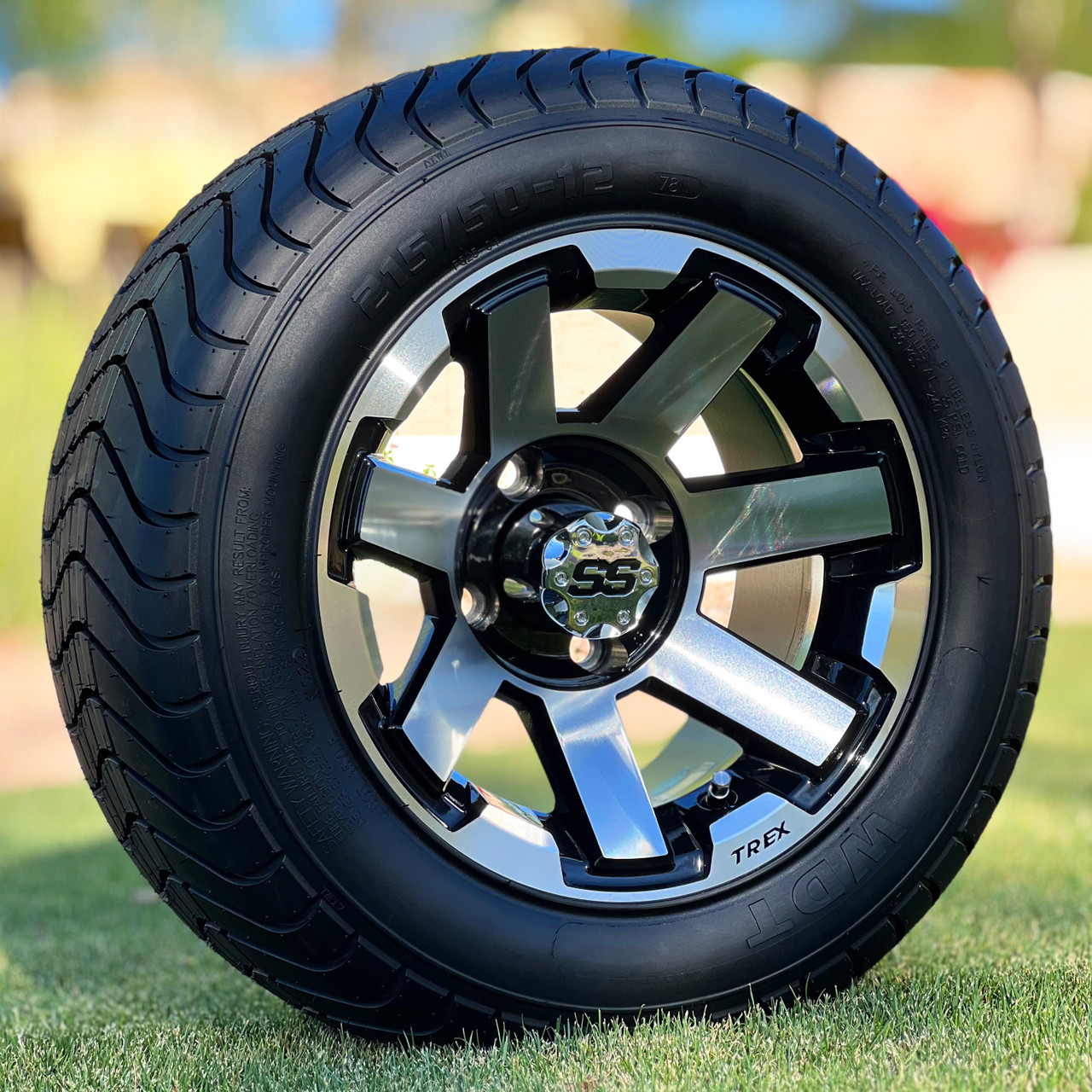 Understanding the Importance
Understanding the Importance
Golf cart wheels are more than just components that allow your cart to move; they play a significant role in the overall performance, safety, and appearance of your vehicle. High-quality wheels can improve handling, provide a smoother ride, and enhance the aesthetic appeal of your golf cart. Additionally, the right wheels can extend the lifespan of your cart by reducing wear and tear on other components.
Performance Enhancement
When you install the right golf cart wheels, you notice a marked improvement in how your cart handles. Better wheels provide improved traction, especially on uneven terrains commonly found on golf courses. They also contribute to a quieter and more comfortable ride, minimizing vibrations and bumps that can affect your overall experience.
Safety Considerations
Safety is paramount when it comes to choosing golf cart wheels. Properly functioning wheels ensure that your cart remains stable and manageable, reducing the risk of accidents. Wheels with good grip and appropriate size help maintain control, especially when navigating sharp turns or slippery surfaces.
Aesthetic Appeal
Golf cart wheels are available in a variety of designs and finishes, allowing you to customize the look of your cart. Whether you prefer a classic, understated style or a more modern, eye-catching design, there are plenty of options to match your personal taste and the overall look of your golf cart.
Types of Wheels
Golf cart wheels come in different types, each designed to cater to specific needs and preferences. Understanding the differences between these types can help you make the best choice for your cart.
Steel Wheels
Steel wheels are the most common type of golf cart wheels. They are sturdy, durable, and affordable, making them a popular choice for many golfers. Steel wheels are ideal for those who prioritize reliability and cost-effectiveness over aesthetics.
- Durability: Steel wheels are known for their strength and ability to withstand rough terrains.
- Maintenance: They require regular maintenance to prevent rust and corrosion, especially if used in wet or humid environments.
- Cost: Generally, steel wheels are more affordable compared to other types, making them a budget-friendly option.
Alloy Wheels
Alloy wheels offer a more stylish and lightweight alternative to steel wheels. Made from a mix of metals, including aluminum, alloy wheels provide better performance and a sleek appearance.
- Lightweight: Alloy wheels reduce the overall weight of the golf cart, enhancing speed and fuel efficiency.
- Aesthetics: They come in various finishes and designs, allowing for greater customization and a more attractive look.
- Performance: Alloy wheels offer better heat dissipation and are less prone to corrosion, increasing their lifespan.
Plastic Wheels
Plastic wheels, often referred to as polyurethane wheels, are another option for golf carts. They are designed to provide a smooth and quiet ride, especially on paved surfaces.
- Smooth Ride: Plastic wheels absorb shocks and vibrations, offering a comfortable ride.
- Low Maintenance: These wheels require minimal maintenance and are resistant to rust and corrosion.
- Steerability: Plastic wheels are excellent for golf carts that require precise steering and maneuverability.
Solid vs. Pneumatic Tires
Golf cart wheels can be fitted with either solid or pneumatic tires, each having its own set of advantages and disadvantages.
Solid Tires
Solid tires are made from a single piece of rubber or polyurethane, eliminating the risk of flats.
- Durability: They are puncture-proof and require no inflation, making them ideal for rough terrains.
- Maintenance: Solid tires require less maintenance compared to pneumatic tires.
- Comfort: They tend to provide a firmer ride, which might be less comfortable on uneven surfaces.
Pneumatic Tires
Pneumatic tires are filled with air, similar to regular car tires, offering a softer and more cushioned ride.
- Comfort: These tires absorb shocks better, providing a smoother ride on bumpy terrains.
- Performance: Pneumatic tires offer better traction and handling, especially on wet or uneven surfaces.
- Maintenance: They require regular air pressure checks and are susceptible to punctures.
Materials Used in Wheels
The material of the golf cart wheels significantly impacts their performance, durability, and appearance. Let’s delve into the common materials used in golf cart wheels.
Aluminum Alloy
Aluminum alloy is a popular choice for golf cart wheels due to its lightweight and durable nature.
- Strength: Aluminum alloy wheels are strong and can handle the weight of the golf cart without deformation.
- Lightweight: They reduce the overall weight, improving the cart’s speed and fuel efficiency.
- Aesthetics: Available in various finishes, aluminum alloy wheels enhance the visual appeal of the golf cart.
Steel
As mentioned earlier, steel wheels are known for their robustness and affordability.
- Durability: Steel wheels are highly durable and can withstand harsh conditions.
- Weight: They are heavier than alloy wheels, which might slightly reduce fuel efficiency.
- Maintenance: Steel wheels require regular maintenance to prevent rust and corrosion.
Polyurethane
Polyurethane wheels are favored for their smooth ride and low maintenance needs.
- Comfort: They provide a quieter and more comfortable ride by absorbing shocks.
- Durability: Polyurethane wheels are resistant to rust and corrosion, extending their lifespan.
- Steerability: These wheels offer excellent maneuverability, making them ideal for precise steering.
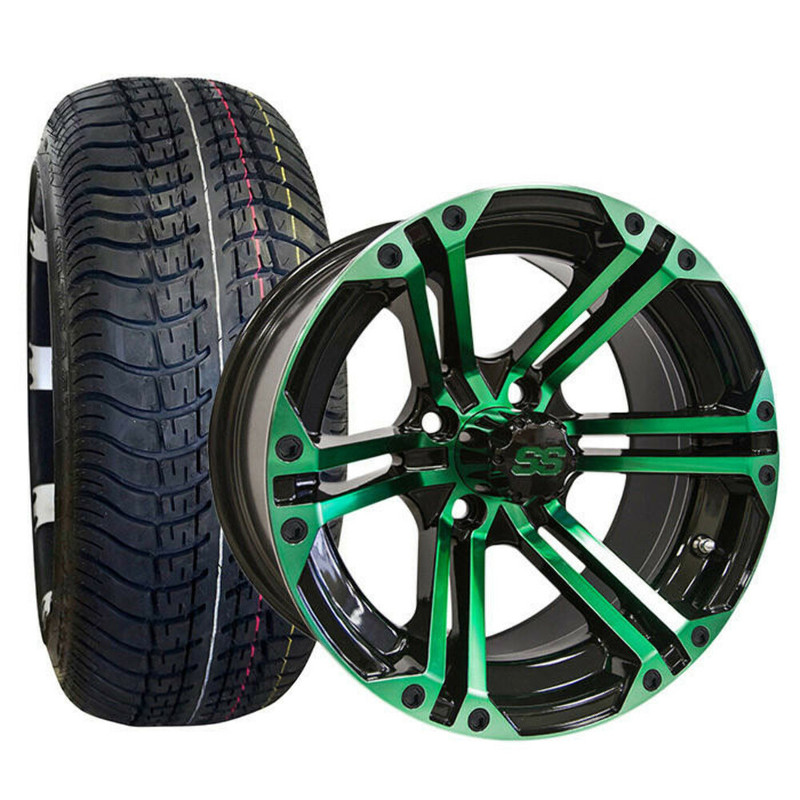 Choosing the Right Cart Wheels for Your Needs
Choosing the Right Cart Wheels for Your Needs
Selecting the appropriate golf cart wheels involves considering several factors that align with your specific requirements and preferences. Here are the key aspects to keep in mind:
Terrain and Usage
The type of terrain you frequently navigate plays a crucial role in determining the best wheels for your golf cart. For instance, if you primarily drive on smooth, paved paths, plastic or pneumatic tires might be ideal. Conversely, if you often encounter rough or uneven terrains, steel or solid tires could be more suitable.
- Smooth Terrains: Plastic or polyurethane wheels offer a comfortable and quiet ride on smooth surfaces.
- Rough Terrains: Steel or solid tires provide the durability and strength needed for uneven or rocky terrains.
- Mixed Terrains: Alloy wheels with pneumatic tires offer a balanced performance for both smooth and rough terrains.
Weight Capacity
Consider the weight capacity of your golf cart and ensure that the wheels you choose can support the load. Overloading the cart can lead to premature wear and tear of the wheels and other components.
- Light Loads: For single golfers or light loads, plastic or aluminum alloy wheels are sufficient.
- Heavy Loads: If you frequently carry heavy loads or multiple passengers, steel wheels are recommended for their superior strength and durability.
Aesthetic Preferences
The look of your golf cart is important, especially if you take pride in its appearance. Golf cart wheels come in various styles, finishes, and colors to match your personal taste and the overall design of your cart.
- Classic Look: Steel wheels offer a traditional appearance that complements any golf cart.
- Modern Look: Alloy wheels provide a sleek and contemporary look, enhancing the cart’s visual appeal.
- Customized Look: Polyurethane wheels come in different colors and finishes, allowing for greater customization and personalization.
Budget Considerations
Your budget will inevitably influence your choice of golf cart wheels. While some materials and types of wheels are more expensive, they often come with added benefits such as durability and enhanced performance.
- Budget-Friendly Options: Steel wheels are usually the most affordable option, offering durability at a lower cost.
- Mid-Range Options: Aluminum alloy wheels provide a good balance between cost and performance.
- Premium Options: Polyurethane wheels and high-end alloy wheels offer superior performance and aesthetics but come at a higher price point.
Maintenance Tips
Proper maintenance is essential to extend the lifespan of your golf cart wheels and ensure optimal performance. Here are some practical maintenance tips to keep your wheels in top condition.
Regular Cleaning
Keeping your wheels clean is crucial for preventing dirt and debris from causing wear and tear.
- Frequency: Clean your wheels regularly, especially after driving on dusty or muddy terrains.
- Method: Use a soft brush and mild soap to scrub the wheels. Avoid harsh chemicals that can damage the material.
- Drying: Ensure the wheels are thoroughly dried after cleaning to prevent rust, especially for steel wheels.
Inspect for Damage
Regularly inspect your wheels for any signs of damage or wear.
- Visual Inspection: Look for cracks, dents, or excessive wear on the wheels.
- Tire Condition: Check the tires for signs of wear, such as thinning tread or visible damage.
- Rotation: Rotate your wheels periodically to ensure even wear and prolong their lifespan.
Proper Inflation
If your golf cart uses pneumatic tires, maintaining the correct air pressure is essential.
- Check Pressure: Use a pressure gauge to check the tire pressure regularly.
- Inflate as Needed: Inflate the tires to the manufacturer’s recommended pressure levels to ensure optimal performance and safety.
- Avoid Over-Inflation: Do not over-inflate the tires, as this can lead to a harsh ride and increased risk of blowouts.
Lubrication
Keeping the wheel bearings and other moving parts lubricated ensures smooth operation.
- Use Appropriate Lubricants: Apply lubricants recommended by the wheel manufacturer to avoid damage.
- Frequency: Lubricate the wheels regularly, especially if you drive in harsh conditions.
- Avoid Over-Lubrication: Excessive lubrication can attract dirt and grime, leading to further issues.
Storage
Proper storage practices can help preserve the condition of your golf cart wheels.
- Cover When Not in Use: Use wheel covers to protect against dust and debris.
- Store Indoors: If possible, store your golf cart indoors to shield the wheels from harsh weather conditions.
- Avoid Prolonged Exposure: Prolonged exposure to the elements can cause rust and deterioration, especially for steel wheels.
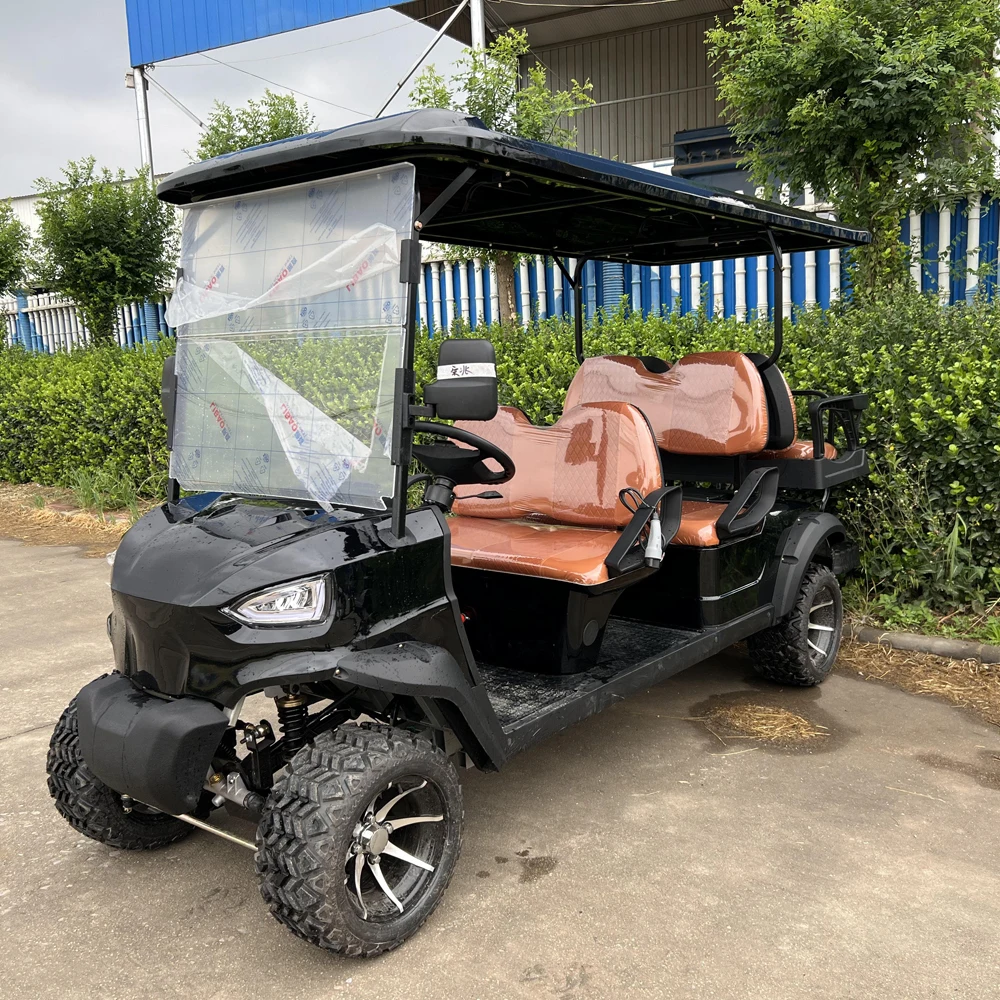 Upgrading Your Wheels
Upgrading Your Wheels
Upgrading your golf cart wheels can significantly enhance both performance and aesthetics. Here’s how you can approach upgrading your wheels effectively.
Performance Upgrades
If you’re looking to boost the performance of your golf cart, consider upgrading to wheels that offer better traction, durability, and handling.
- Alloy Wheels: Switching to alloy wheels can reduce the overall weight, improving speed and fuel efficiency.
- High-Performance Tires: Upgrade to higher performance tires that offer better grip and longer tread life.
- Larger Wheels: Larger wheels can provide a smoother ride and better handling on rough terrains.
Aesthetic Upgrades
Enhancing the look of your golf cart is easy with the right wheels. Choose wheels that complement the color and style of your cart.
- Custom Finishes: Opt for wheels with unique finishes such as chrome, matte, or metallic to add a personalized touch.
- Color Matching: Select wheels that match or contrast effectively with the color of your golf cart for a striking appearance.
- Stylish Designs: Look for wheels with stylish designs, including spokes, patterns, and unique shapes, to make your cart stand out.
Technology Upgrades
Modern golf cart wheels come with advanced features that can improve the overall functionality of your cart.
- Smart Wheels: Some high-end wheels come with smart technology that tracks performance metrics and provides real-time data.
- Enhanced Safety Features: Upgrade to wheels with integrated safety features such as better braking systems and improved traction control.
- Eco-Friendly Options: Consider wheels made from sustainable materials that contribute to a greener environment.
Common Mistakes to Avoid
Selecting the wrong wheels can lead to decreased performance, increased maintenance, and a less enjoyable golfing experience. Here are some common mistakes to avoid.
Ignoring Compatibility
Ensure that the wheels you choose are compatible with your golf cart’s model and specifications.
- Size Matters: Verify the size of the wheels, including diameter and width, to ensure a proper fit.
- Bolt Patterns: Check the bolt patterns to make sure the wheels align correctly with your cart’s hub.
- Weight Limits: Ensure the wheels can support the weight capacity of your golf cart, especially if you frequently carry heavy loads.
Prioritizing Aesthetics Over Functionality
While the look of your wheels is important, functionality should not be overlooked.
- Balance Design and Performance: Choose wheels that offer both aesthetic appeal and performance benefits.
- Quality Over Cost: Investing in high-quality wheels may cost more initially but can save you money in the long run by reducing maintenance and replacement needs.
Skipping Maintenance
Neglecting regular maintenance can shorten the lifespan of your wheels and negatively impact performance.
- Routine Checks: Regularly inspect and maintain your wheels to catch issues early and prevent costly repairs.
- Proper Storage: Store your golf cart and wheels properly to avoid unnecessary wear and damage.
Choosing Based Solely on Price
Opting for the cheapest wheels available can lead to poor performance and frequent replacements.
- Evaluate Long-Term Costs: Consider the long-term benefits and savings of investing in higher-quality wheels.
- Research Options: Take the time to research and compare different wheel options to find the best balance between cost and quality.
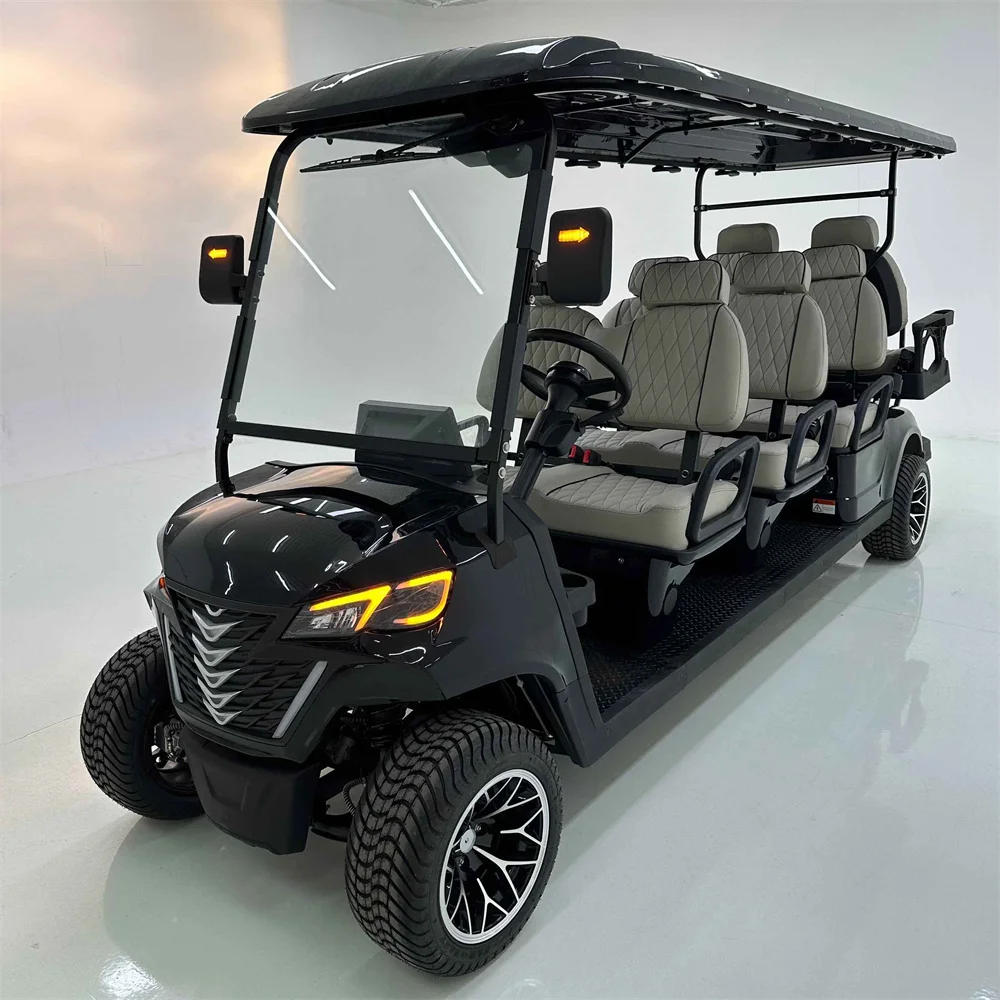 Frequently Asked Questions
Frequently Asked Questions
What are the best materials for golf cart wheels?
The best materials for golf cart wheels depend on your specific needs. Aluminum alloy wheels are great for performance and aesthetics, steel wheels offer durability and affordability, and polyurethane wheels provide a smooth and quiet ride. Consider the terrain, usage, and budget when selecting the material.
How often should I replace my golf cart wheels?
The frequency of replacing golf cart wheels depends on usage and maintenance. On average, wheels may need replacement every 2-5 years. Regular inspections for signs of wear, damage, or decreased performance can help determine the right time for replacement.
Can I install different types of wheels on my golf cart?
Yes, you can install different types of wheels on your golf cart as long as they are compatible with your cart’s specifications. Ensure that the size, bolt pattern, and weight capacity match your cart’s requirements to avoid any issues.
How do I maintain my wheels?
To maintain your golf cart wheels, regularly clean them to remove dirt and debris, inspect for damage or wear, keep pneumatic tires properly inflated, lubricate moving parts, and store your cart in a dry, sheltered area. Regular maintenance helps extend the lifespan of your wheels and ensures optimal performance.
What are the signs that my wheels need replacement?
Signs that your golf cart wheels need replacement include visible cracks or dents, excessive wear on the tires, reduced traction, unusual noises during operation, and decreased handling performance. If you notice any of these symptoms, it’s time to inspect and possibly replace your wheels.
Are there eco-friendly options for wheels?
Yes, there are eco-friendly options available for golf cart wheels. Some wheels are made from sustainable materials such as recycled aluminum or eco-friendly polyurethane. Additionally, choosing durable wheels that last longer reduces waste and environmental impact.
How do I choose the right size of wheels?
Choosing the right size of golf cart wheels involves checking your cart’s manufacturer specifications. Measure the diameter and width of your current wheels and ensure that any replacement wheels match these dimensions. Proper sizing ensures compatibility and optimal performance.
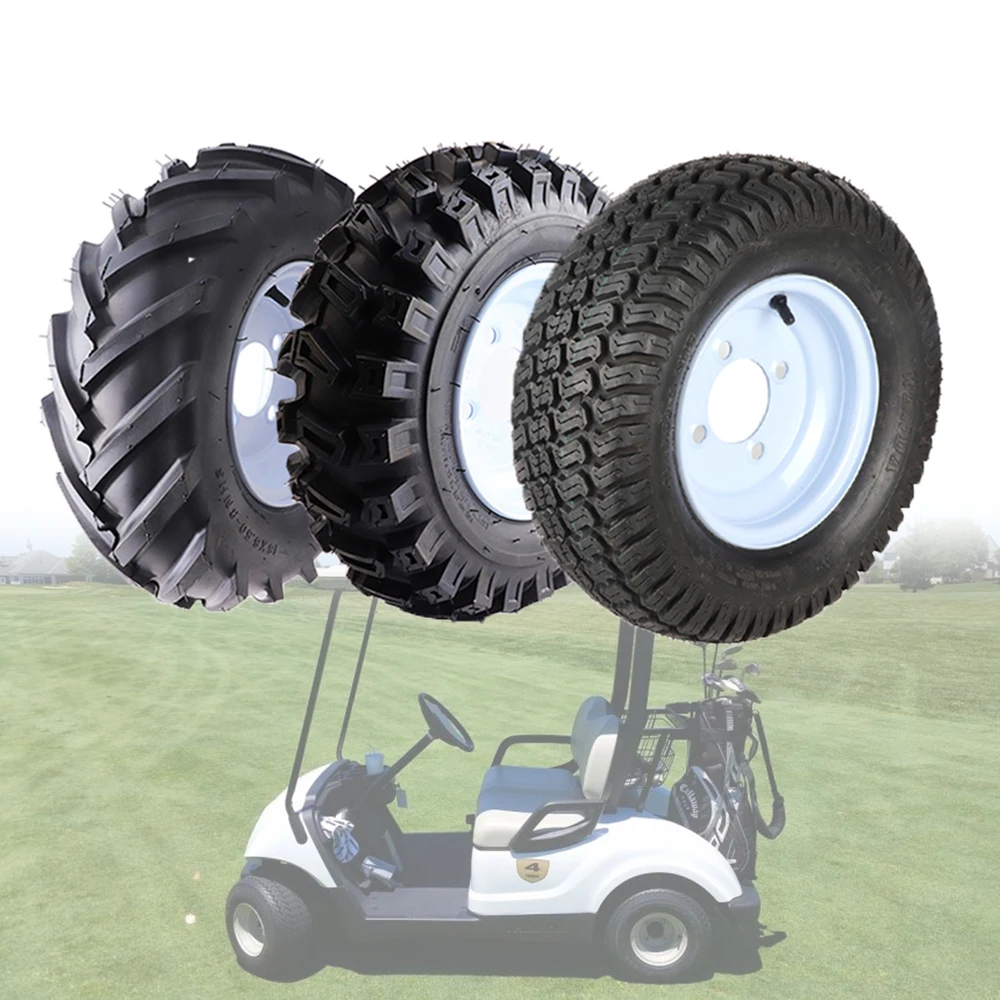 Selecting the Perfect Wheels for Your Needs
Selecting the Perfect Wheels for Your Needs
Choosing the right golf cart wheels can transform your golfing experience, enhancing both performance and style. By considering factors such as terrain, weight capacity, aesthetics, and budget, you can make an informed decision that meets your specific requirements. Regular maintenance and avoiding common mistakes will ensure that your wheels stay in excellent condition, providing a smooth and enjoyable ride for years to come.
When selecting new wheels, take the time to research different materials and types, and don’t hesitate to consult with experts if needed. Whether you prioritize durability, performance, or aesthetics, there are plenty of options available to suit your needs. Upgrading your golf cart wheels is a smart investment that can significantly enhance your time on the course, making each game more enjoyable and efficient.
In conclusion, understanding the various aspects of best golf cart wheel upgrades for speed is essential for any golf enthusiast looking to maintain or improve their cart. From selecting the right type and material to ensuring proper maintenance, each step plays a crucial role in optimizing your golf cart’s performance and longevity. Embrace the opportunity to customize and upgrade your wheels, and enjoy the enhanced performance and stylish appearance that comes with choosing the perfect wheels for your golf cart.